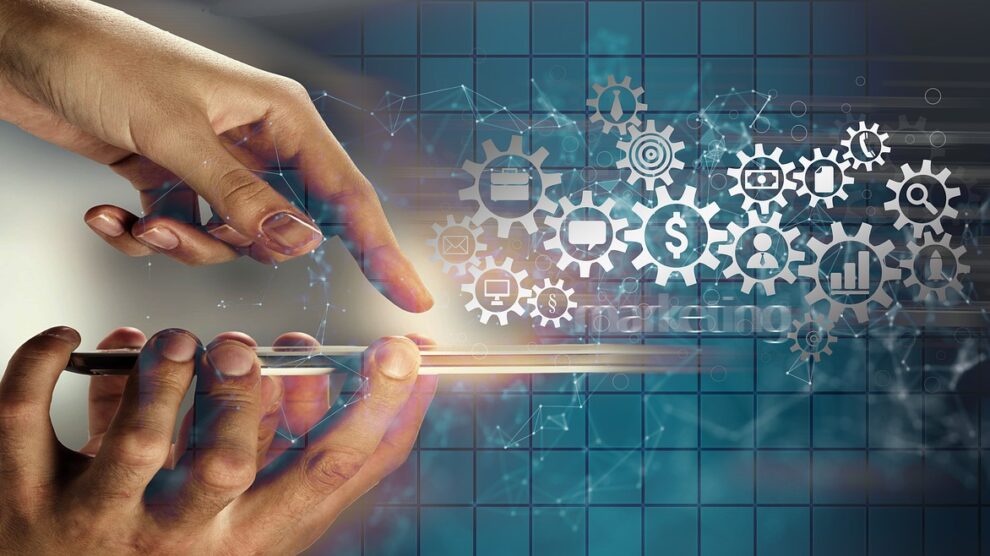In today’s digital age, businesses need to constantly adapt and innovate to keep up with the changing needs and expectations of their customers. One such innovation that has gained traction in recent years is the concept of phygital marketing, which combines the physical and digital worlds to create a seamless customer experience.
Phygital marketing is all about creating a holistic experience for customers, where they can seamlessly transition between the physical and digital aspects of a brand. This can involve a range of tactics, from using augmented reality in-store to offering personalized digital experiences through mobile apps or social media.
Phygital marketing is becoming increasingly important for businesses today, as customers expect a consistent and convenient experience across all touchpoints. By bridging the gap between online and offline shopping, phygital marketing can help businesses create a strong brand identity and build long-term customer loyalty.
In this blog, we will explore the concept of phygital marketing in more detail, and look at some of the key ways businesses are using this approach to enhance the customer experience.
What is Phygital Marketing?
Phygital marketing is a relatively new concept that has emerged as a response to the changing nature of consumer behavior. With the rise of e-commerce, customers are increasingly looking for convenience and flexibility in their shopping experiences. However, many customers still value the physical aspects of shopping, such as the ability to touch and try on products, and the social experience of shopping with friends and family.
Phygital marketing aims to bridge the gap between these two worlds, by combining the physical and digital aspects of a brand to create a seamless customer experience.
This can involve a range of tactics, such as:
- Using augmented reality or virtual reality technology to enhance the in-store experience
- Offering personalized digital experiences through mobile apps or social media
- Creating interactive displays and installations that encourage customers to engage with the brand
- Using digital signage and other forms of digital media to enhance the in-store experience
- Creating a consistent brand experience across all touchpoints, from in-store to online and beyond.
Phygital marketing is all about creating a holistic experience for customers, where they can seamlessly transition between the physical and digital aspects of a brand. By doing so, businesses can create a strong brand identity and build long-term customer loyalty.
The Evolution of Shopping
To understand the importance of phygital marketing, it is important to first understand the evolution of shopping. Traditionally, shopping involved physically going to a store, browsing products, and making a purchase. However, with the rise of e-commerce, customers are now able to shop from the comfort of their own homes, and have products delivered directly to their doorstep.
While e-commerce offers many benefits, such as convenience and a wider range of products, it also lacks the physical and social aspects of shopping. This is where phygital marketing comes in, by bridging the gap between online and offline shopping and creating a seamless customer experience.
The Importance of Phygital Marketing
Phygital marketing is becoming increasingly important for businesses today, as customers expect a consistent and convenient experience across all touchpoints. By combining the physical and digital aspects of a brand, businesses can create a strong brand identity and build long-term customer loyalty.
One key benefit of phygital marketing is the ability to offer a personalized customer experience. By using data and technology, businesses can tailor their offerings to individual customers, and provide a more personalized experience across all touchpoints.
Another benefit of phygital marketing is the ability to create a strong brand identity. By combining physical and digital elements, businesses can create a unique and memorable brand experience that sets them apart from competitors. This can help businesses build brand loyalty and increase customer retention.
Phygital marketing can also help businesses reach a wider audience by using digital channels to complement their physical presence. For example, a brand could use social media to showcase its in-store displays, or create an online store to supplement its physical store locations.
In addition to these benefits, phygital marketing can also provide businesses with valuable insights into their customers’ behavior and preferences.
By tracking customer interactions across all touchpoints, businesses can gain a better understanding of what drives customer engagement and loyalty, and use this information to optimize their marketing and sales strategies.
Examples of Phygital Marketing
Now that we’ve covered the basics of phygital marketing, let’s take a look at some examples of businesses that are using this approach to enhance the customer experience.
Phygital Retail: Adidas
Adidas is one brand that has successfully implemented phygital marketing in its retail strategy. The company’s flagship store in New York City features a range of interactive displays and installations, including a wall of shoes that uses augmented reality to showcase different styles and colors.
The store also features a “Speedfactory” that allows customers to design and customize their own shoes, and a “Knit for You” station that uses 3D knitting technology to create personalized clothing items on demand.
Through these initiatives, Adidas has been able to create a unique and immersive Phygital retail experience that combines the physical and digital aspects of its brand. By doing so, the company has been able to build a strong brand identity and increase customer loyalty.
Phygital Customer Experience: Sephora
Sephora is another brand that has embraced phygital marketing in its customer experience. The beauty retailer’s mobile app allows customers to try on virtual makeup and hairstyles, and provides personalized product recommendations based on their skin tone and preferences.
Sephora has also implemented a “Beauty Insider” loyalty program that rewards customers for their purchases and engagement with the brand. The program provides customers with personalized offers and discounts, as well as access to exclusive events and experiences.
Through these initiatives, Sephora has been able to create a seamless and personalized customer experience that combines the physical and digital aspects of its brand. This has helped the company build strong customer loyalty and increase sales.
Conclusion
Phygital marketing is a powerful approach that can help businesses bridge the gap between online and offline shopping, and create a seamless customer experience. By combining physical and digital elements, businesses can create a unique and memorable brand identity, build customer loyalty, and increase sales.





